Again and again, property owners and tenants are confronted with various insurance issues that arise both in the construction and the use phase of building. The topic of insurance is complex, and often leads to a great sense of insecurity. For this reason, it is well worth taking a closer look at various types of insurance and their features.
On July 1, 2009, an amendment to Switzerland‘s Federal Insurance Contract Act („VVG“) took effect. When ownership of a property changes hands, the rights and responsibilities from the insurance policy for private indemnity and liability insurance are transferred to the acquiring party, unless this party notifies the insurance companies that it is waiving the transfer (in writing within 30 days of the date of title transfer).
1. Insurance coverage for the real estate owner
Building insurance:
Building insurance is obligatory in all cantons in Switzerland, and depending on the canton, is offered either by various private insurance companies (in Geneva, for example), or by insurance companies operating under public law (in Zurich, for example). The insurance covers the following major risks:
- fire loss and damages
- natural hazards damage (such as earthquake, hail, storm, avalanche or landslide)
- water damages due to external forces (e.g., flood)
- Any break-in or glass damage (may be contained in the building insurance, depending on canton)
Building insurance covers the building and the fixtures contained therein (such as ceramic tile stove, built-in cupboards and wardrobes, sanitation facilities). Beside property damage, incidental losses are also covered, such as removal and clean-up costs, or loss of rental/lease income.
Building pipeline insurance
A building pipeline insurance policy is no longer mandatory for all real estate owners. Among many things, it covers the following events:
Water damages from pipe systems, or damage to building interior due to rain; snow and melt water that seeps in through the roof; backwater from the sewerage system or ground water that gets into the building; water and other fluids that have escaped from heating and tank systems, refrigeration systems, heat exchangers or heat pump and circulation systems; overflowing bathtubs; pipes or radiators that burst from freezing. On top of this, the costs for detection (leakage detection costs), exposing burst pipes, and bricking-up repaired pipelines are all covered to a limited extent. The loss of lease income for the duration of the property‘s unavailability may also be insured.
Building glass insurance
Depending on the canton, glass insurance is either separate, or can be contained in the public building insurance policy. It applies to damages from glass breakage for glass that is affixed to the building. Common loss events include tension cracks in the windows, birds flying into the window, or carelessness when closing windows, for example. Upon request, the home owner can also obtain coverage designated for individual glass panels in the building. In this case, one should become fully acquainted with the insurance policy exclusions. Normally, various risks have to be insured separately (such as damage from wear and tear on the wash stands, bidets, bathtubs, etc.).
Owner liability
If a building owner does not personally reside at his/her property, or the property consists of more than three residential units, then this insurance is mandatory. This condition also applies to condominium ownership, joint ownership or houses built with building rights. Building owner liability insurance covers damage and losses that are caused by third parties.
Examples of this include:
1. A child gets injured by an unsecured cable on a playground; a tree falls on a visitor‘s car. 2. A visitor slips and falls on wet stairs and gets injured. An oil tank is defective and contaminates the ground water. 3. Attorney, court, and expert fees in the defense of unfounded claims.
Since personal injury, property damage and financial loss must be insured, the insured amount should be set at a commensurately high level. As a rule, a coverage amount of CHF 4 to 5 million per insured event is recommended.
2. Insurance for renters and owners
Household insurance
Procuring a household insurance policy is highly advisable, even if it is not obligatory. It takes over the property damages that arise at your own household, and typically cover the following risks:
- Water damages and natural hazard events:
Damage / destruction to furnishings caused by, for example, overflowing bathtubs, leaking water bed, break in the water line to the washing machine, or flooding. - Theft:
Burglary and robbery - Glass insurance:
Depending on the canton, you should fully ascertain whether glass risks are already included under your building insurance policy. Normally, glass insurance is more cost-effective under a household policy. A diversity of supplemental insurance coverage is also available. The premiums vary depending on building type, deletion options and value of the furnishings (present value or replacement insurance). The insured should periodically review the insured amount, and adjust it as needed.
Private liability insurance
Primarily for tenants, but also for property owners, securing a private liability insurance policy to complement the above coverage is suggested. Under normal circumstances, the insured amount ranges between CHF 3 to 5 million per insured event, and in the real estate sector it covers the following property damages and personal injury: claw marks in the flooring; crack in the washstand; torn wallpaper; owner‘s dog bites postal carrier; guest slips and falls on wet floor and breaks a leg.
3. Insurance for builders
Builder‘s risk insurance
Property asset value insurance protects the builder/contractor during the construction period from unforeseen construction accidents, theft or vandalism. Obtaining such insurance coverage is not obligatory, but is highly recommended.
Builder-owner liability
This insurance protects the builder/contractor, the owner of a property or staff from third party claims during the construction period. As with building liability insurance, this type of policy could cover personal injury and property damages, loss mitigation, expert, attorney or court fees. According to a ruling of the Swiss Supreme Court, this personal injury and property damage insurance is obligatory for builder/contractor; otherwise, the architect would alternatively have to assume this liability. Normally, CHF 2 to 5 million are insured per event.
Construction period insurance
(Progressive building insurance)
This type of insurance is mandatory for builders/contractors in the majority of cantons. As with building insurance, this insurance coverage applies to real value, and covers these assets against fire, water, glass and natural hazard damages that arise during the construction period. The insurance must be concluded at construction start, and ends with its transfer of the building into the building insurance policy.
Due to the complexity and the range of insurance coverage, we recommend the following when proceeding to obtain an insurance policy:
1. Compare the respective benefits and the premiums of the insurance policies.
2. Avoid double-insuring, over-insuring and most of all, under-insuring. Under-insurance and over-insurance is penalized under all insurance policies by massive reductions in benefits.
3. Consult with a neutral, independent insurance consultant.
4. For new construction with ongoing guarantee periods, it is possible to dispense with certain insurance.
5. Conduct an ongoing, critical assessment of your own personal insurance situation.
Author: Claude Ginesta

Claude A. Ginesta is a federally licensed real estate fiduciary (registered with the SVIT, the Swiss Federation of Real Estate Fiduciaries) and owner and CEO of Ginesta Real Estate AG.
The company was founded in 1944 and specializes in the sale of properties in the Zurich and Grisons markets. With offices in Küsnacht, Horgen and Chur, the company operates as real estate broker throughout Switzerland for properties located across the country.
Publisher of the “Illusions” series Ginesta Real Estate AG, www.ginesta.ch









